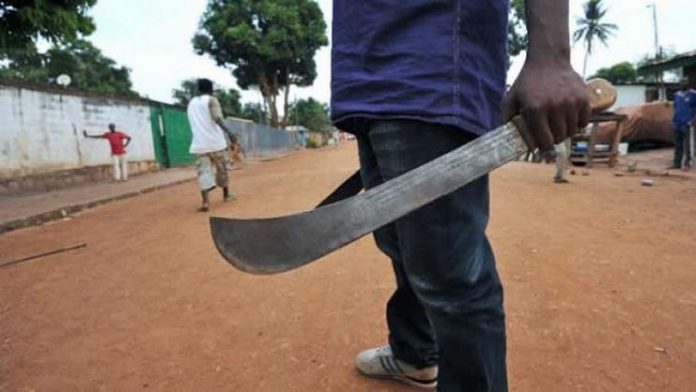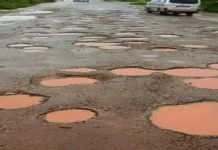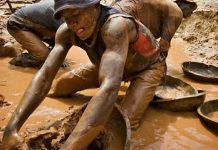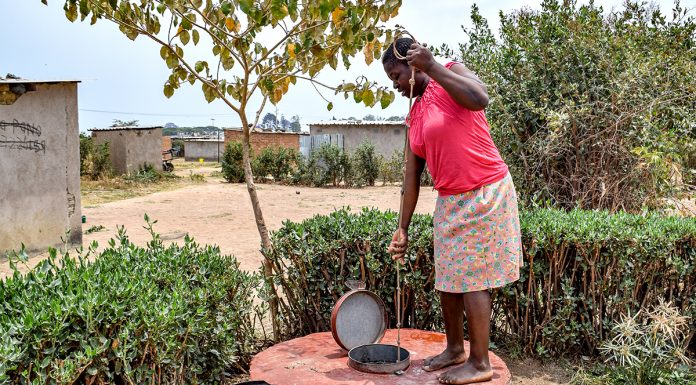By Farai Mabeza
THE stories are horrific, brutal, shocking and traumatizing even to the listener. The brazenness, the audacity of the perpetrators make the stories sound like folktales, or like works of fiction. They are just too grisly to contemplate.
Yet they have been part of the daily lives of the people of Bindura since the arrival of the so called maShurugwi a few years ago. The residents can’t say exactly when the maShurugwi first set foot in their town of Bindura, the capital city of Mashonaland Central province, 87 kilometres north of Harare.
Residents trace how their lives turned to a nightmare over the past three or so years.
The name maShurugwi is tied to the original clique of the rogue artisanal miners which hails from the Midlands district of Shurugwi. This is rather too simplistic an approach as their background is a little bit more complex.
In the 1990s Shurugwi experienced a gold rush which was mainly concentrated around the area near where platinum producer Unki is now located.
The gold rush saw thousands of people from different parts of the country, including the locals, descending on the area.
Eventually, thousands of people crowded with barely any space to breathe, using crude methods of mining was inevitable. Amid fierce competition for the gold, violence soon became the order of the day.
After all, this was all about the dollar and the battles were ruthlessly fought.
The job itself is rudimentary, extremely dangerous and comes with many risks. Many died. From accidents and homicides. They responded to the harsh and wild conditions the only way possible, violence.
Basically it was the rule of the jungle that reigned. Eat or be eaten. The wars were not only fought in the makeshift mines, but extended to the local watering holes also patronized by the locals. Initially, the fights were only among the miners, but they quickly spilled to the community.
Thus the legend of the maShurugwi began to take shape and with it, their reign of terror.
At that time nobody thought they would gain the nationwide notoriety they have now. In time the gold deposits in the area over which blood had been spilt began to give less and less.
But as fate would have it, another mineral rush came, this time in the diamond fields of Marange. In an instant the riches of Shurugwi paled in comparison with what Marange promised. They trooped to Marange, now as a single community. They arrived in Shurugwi as strangers but left as one community, albeit a cocktail of people from Shurugwi and other areas.
Having worked together for years and bonded over many lascivious and brutal acts they arrived in Marange as maShurugwi. The violence that occurred in Marange is well documented. Security was tighter, a lot more than it had been in Shurugwi. The stakes were higher and to access the diamonds one had to be more vicious than before.
And with the moniker maShurugwi now firmly adopted as their signature they ruthlessly dealt with rivals. This scenario was not only confined to Marange but played out in other parts of the country including Bulawayo, Kadoma, Shamva, Kwekwe and Bindura.
At first the residents of Bindura cowered at the viciousness of the maShurugwi. They were tormented, brutalized and bullied. The maShurugwi robbed, raped and plundered.
They became so brazen that some of their acts of robbery did not even involve the use of any weapons or overt violence. They simply demanded what they wanted, money, cellphones. They even bullied residents into buying them alcohol in the local bars.
“One muShurugwi could simply enter a bar and announce ‘muShurugwi auya’ (a muShurugwi has come). Without a weapon, with nothing the imbibers would scurry to their homes for cover,” recalls Onias from Chipadze Township.
This went on for a while. The residents kept submitting to the demands of the maShurugwi. The maShurugwi kept demanding more, bullied even more and some locals began to adopt the Karanga dialect spoken by the maShurugwi. They too became maShurugwi and began to tormentfellow members of the community.
The residents powerlessly looked on. The maShurugwi showed no fear for the law.
Soon however the residents reached their breaking point. They had been backed against the wall. There was only one way to deal with this problem. Fight back. In September this year hundreds of youths from the suburbs of Chipadze and Chiwaridzo among others mobilised themselves to flush out the tormentors from their midst.
The youths most of them also involved in artisanal mining fought not only to reclaim their community but their source of livelihood as well. The maShurugwi had taken over the mining pits used by the youths.
The maShurugwi were outnumbered and taken by surprised. They barely fought back.
…but Bindura resident still live in fear
But the residents are not ready to celebrate.
“Some of them (maShurugwi) are in hiding under the shelter of prostitutes. The prostitutes don’t care because they are also not from around here so they have no fear or shame. Their families are faraway,” said a local man who wants to be identified as Tindo.
The maShurugwi have gone underground. The residents are quietly reclaiming their lives, their drinking spaces and other social spaces which had become no go areas.
But if the maShurugwi do surface the people of Bindura hope for peace.
“They don’t need to do all this. They are Zimbabweans. We are Zimbabweans. Let’s work together. Let’s have the officials regulating our (mining) operations so that we can work together. There is a lot of gold in this area. It’s enough for all of us,” said another local who only wants to be known as Tsano.
President Emmerson Mnangagwa recently assured artisanal miners gathered at a conference in Gweru that the government was aware of the gangs of maShurugwi and would deal with them.
“We are aware of the activities done by people who go around bullying others, who don’t even have the requisite papers and who are using force to chase away those with proper claims. If anyone is found with a machete they are going straight to jail,” President Mnangagwa.
Meanwhile, citizens suffer amid claims the gangs are linked to top government officials and politicians close to the presidency.














